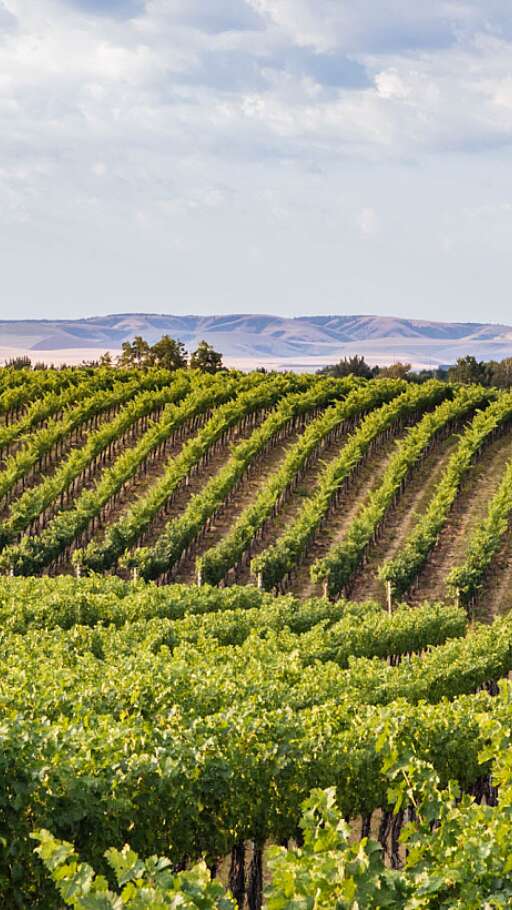
Vineyards
COLUMBIA VALLEY GRAPES
The Essence of Washington Wine
In the late 1990s, Chuck Reininger was the first in the wine industry to recognize the significance of the cataclysmic lava flows and floods that scoured Eastern Washington ages ago.
Today, we take inspiration from the unique terroirs the Columbia Valley AVA lends to Washington wines. With 11 million acres, the Columbia Valley accounts for 99% of Washington’s wine grape production and there is still much to be discovered!
While the vineyards of the Columbia Valley share much in common in the way of climate, subtle variations across the region have led to the discovery of numerous microclimates and the official assignment of sub-appellations. As with REININGER, our Helix wines express the distinct flavors of each vineyard and capture the essence of each vintage.
For 25 years, we’ve worked with top viticulturists, sourcing fruit from the best vineyards in the State, many of which have sustainability in mind and are Salmon-Safe.
I want people to drink wine from all over the world so they can see how special Washington is.— Chuck Reininger, Founder & Winemaker
our Select Vineyards
Creating Well-Balanced Wines
With the vast 11 million acres at our disposal, winemaker Chuck Reininger hones in on vineyards which showcase the best varietal character, while using minimal winemaking techniques. Our long-term vineyard partners share a strong commitment to quality, are passionate stewards of the land and are willing to work closely with us to produce fruit that strongly reflects our style.
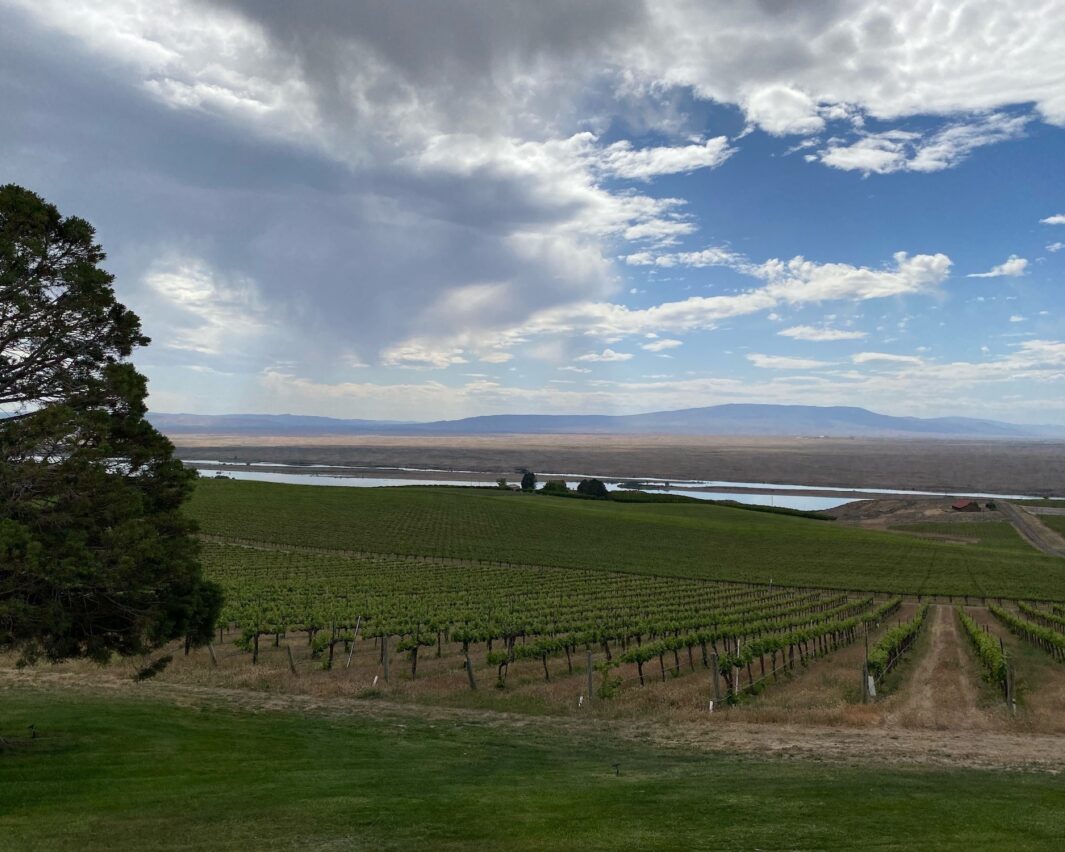
Bacchus Vineyard, The White Bluffs AVA
Grapes We Use: Merlot
Planted in 1972, Bacchus Vineyards played a pioneering role in the region. Located near Pasco, WA on a southwest facing hillside with dramatic views of the Columbia River below, Bacchus is now one of four vineyards associated with the larger Sagemoor Vineyards, one of the oldest large-scale plantings of vinifera grapes in the State.
Bacchus' 182.5 acres is predominantly planted with Cabernet Sauvignon, Sauvignon Blanc and Merlot, as well as Riesling, Chardonnay, Cabernet Franc and Syrah.
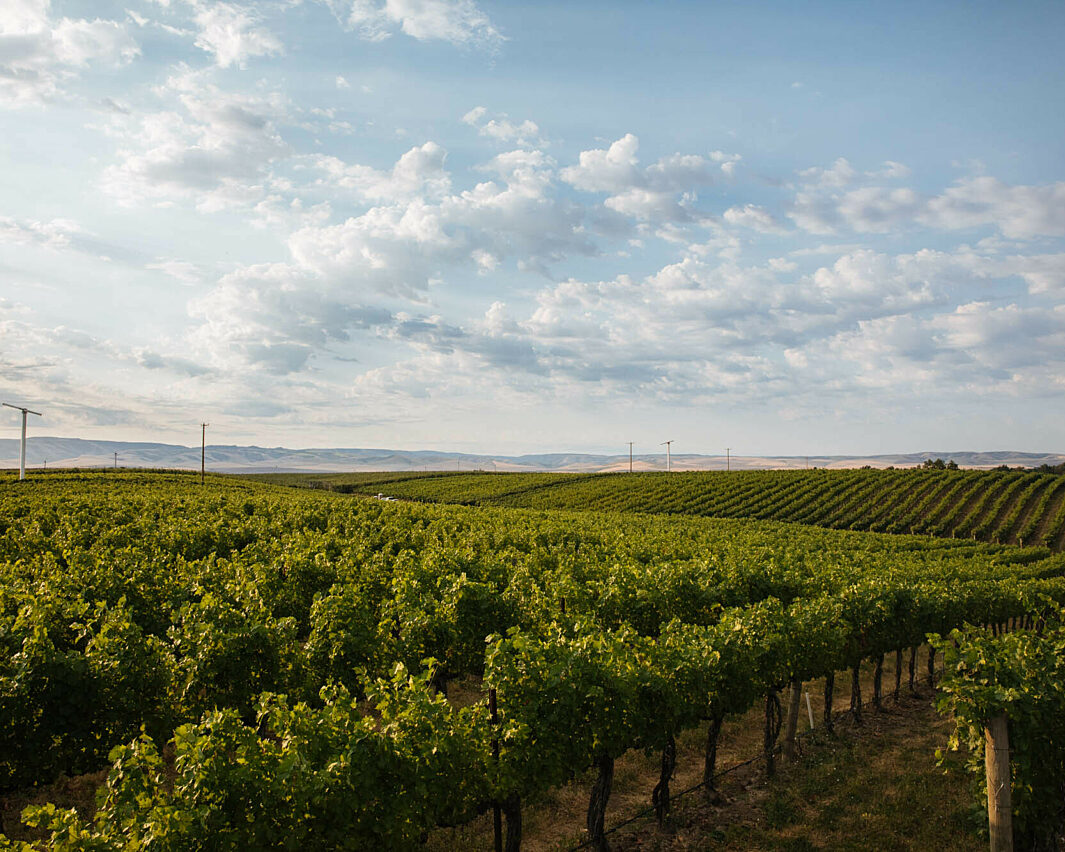
Pepper Bridge Vineyard, Walla Walla Valley AVA
CERTIFIED SALMON SAFE
Grapes We Use: Cabernet Sauvignon, Merlot, Syrah, Malbec
Straddling the state line between Washington and Oregon, Pepper Bridge Vineyard was planted in 1991. Known for its outstanding reputation throughout Washington State, Pepper Bridge has some of the most sought after grapes planted throughout its 200 acres.
At an elevation of 850 feet, Pepper Bridge sits atop the ancient glacial bed of Lake Lewis leftover from the Missoula Floods. The top three feet of soils are Walla Walla silt loam, a windblown loess, but beneath that lays rich sedimentary deposits left behind as the flood waters receded. The soils are nutrient-rich with high levels of potassium that increases the pH in the fruit and lends a softness to our wines.
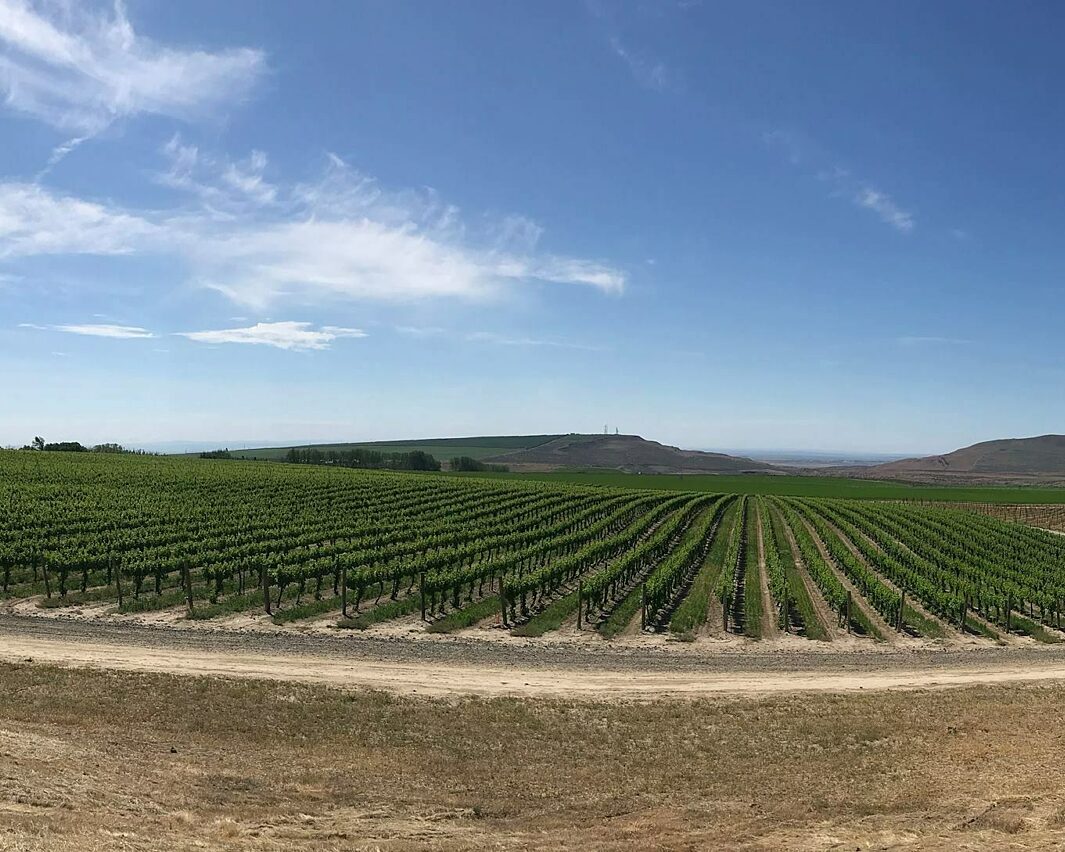
Phinny Hill Vineyard, Horse Heaven Hills AVA
Grapes We Use: Cabernet Sauvignon & Syrah
Set along the western side of the Horse Heaven Hills and overlooking Champoux Vineyard and the Columbia River at an elevation of 750 feet, Phinny Hill is Located near Alderdale, Washington.
This 100-acre vineyard sits atop a sun-drenched hill of rare cobble-filled soils left over from the Missoula Floods during the last Ice Age. The rocky soils and eastern-facing slopes provide great irrigation and air drainage for their vines, especially the predominantly planted Bordeaux grape varietals.
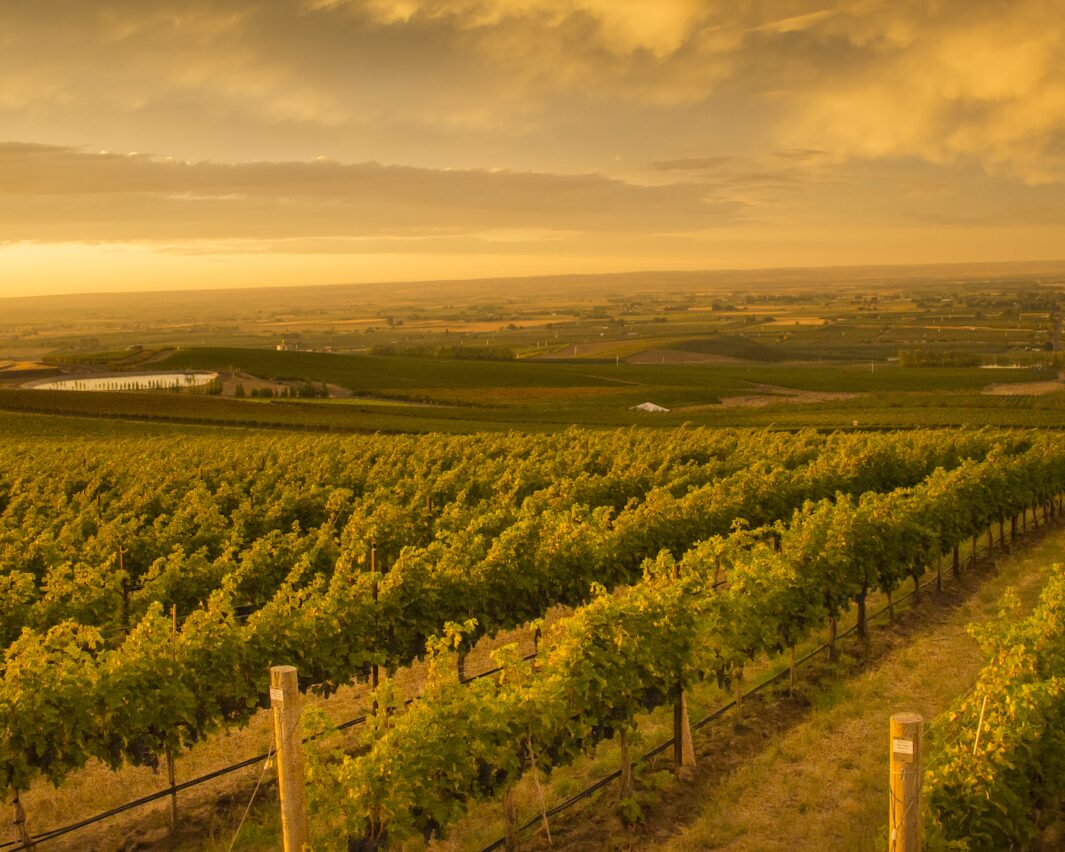
Seven Hills Vineyard, Walla Walla Valley AVA
CERTIFIED SALMON SAFE
Grapes We Use: Cabernet Sauvignon, Cabernet Franc, Carmenère, Merlot, Petit Verdot, Sangiovese, Syrah
One of the first commercially planted vineyards in the Walla Walla Valley, Seven Hills dates back to 1982. Over the last 40 years, Seven Hills has expanded to more than 235 acres In 2004, Wine & Spirit included Seven Hills in the top ten greatest vineyards in the world.
With an elevation of 850-1,050 feet, Seven Hills has excellent soil and air drainage for the 12 varieties that grow on its soil, and is one of the most technically advanced in the industry. It sits atop ancient layers of Touchet Beds, which are slackwater sedimentary deposits of sandy silt loam left behind by the Missoula Floods, occurring between 13,000-17,000 years ago. Above the Touchet Beds lies a meter of wind-blown sandy silt loam known as loess. Predominantly the loess soils are Ellisforde silt loam, which is full of minerals that are important for the vines.
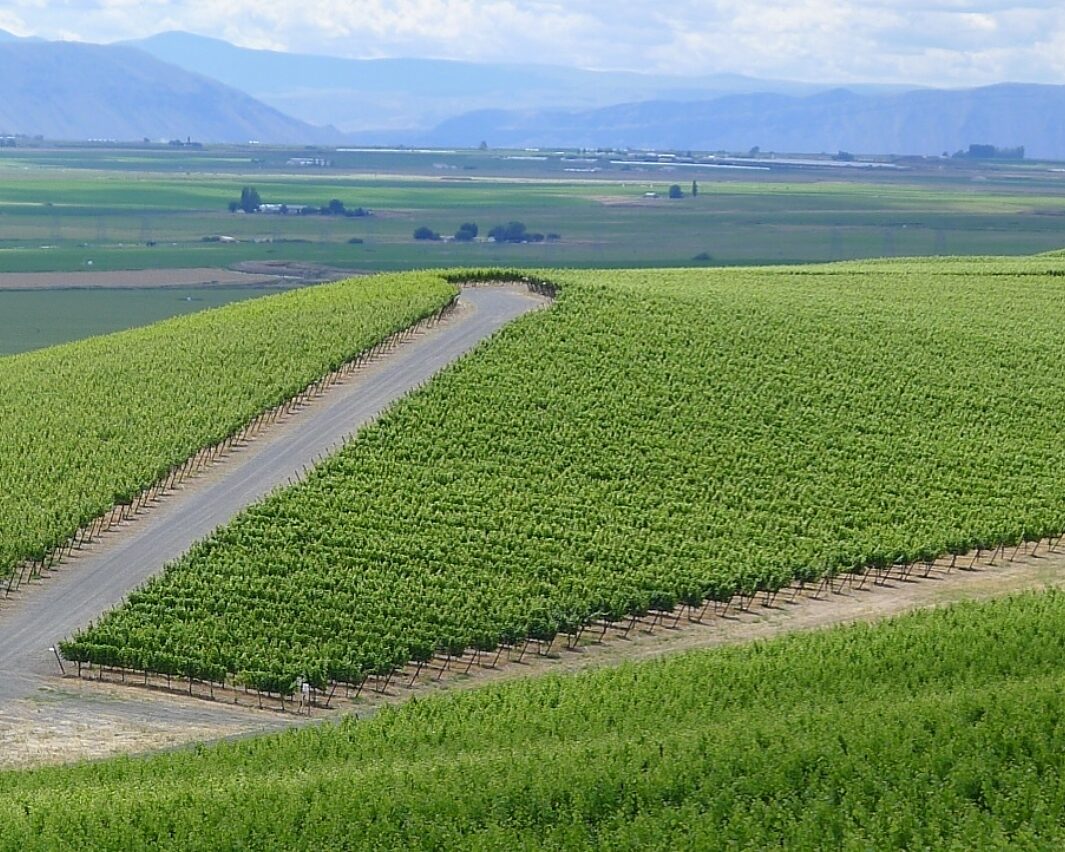
Stillwater Creek Vineyard, Royal Slope AVA
CERTIFIED SALMON SAFE
Grapes We Use: Chardonnay, Merlot, Sangiovese, Viognier
Stillwater Creek Vineyard is a 235-acre site on the Royal Slope of the Frenchman Hills. Planted in 2000 on a steep, south-facing slope with one of the most diverse clone selections in Washington State, the vineyard has earned a reputation as one of Washington’s top vineyards.
Stillwater Creek’s fractured rock and extreme southern exposure are ideal for reds. White grapes are planted on a mixture of fractured rock and areas of fine sandy loam. The vineyard’s favorable elevation makes it well protected in terms of frost damage, but also considerably cooler compared to the neighboring Wahluke Slope AVA. Temperatures during the growing season favor warm days and cool nights, creating a natural balance in the grapes, particularly for the early-ripening reds like Merlot and Sangiovese. Grapes are typically harvested 2-3 weeks later than that of the Wahluke Slope giving the varietals incredible acidity that would’ve ordinarily dropped off on warmer sites.
In 2007, Stillwater Creek was the first Columbia Valley vineyard certified “Salmon Safe” by Seattle’s Stewardship Partners for environmental practices that help protect water quality and habitat for fish and wildlife, particularly native Northwest salmon.
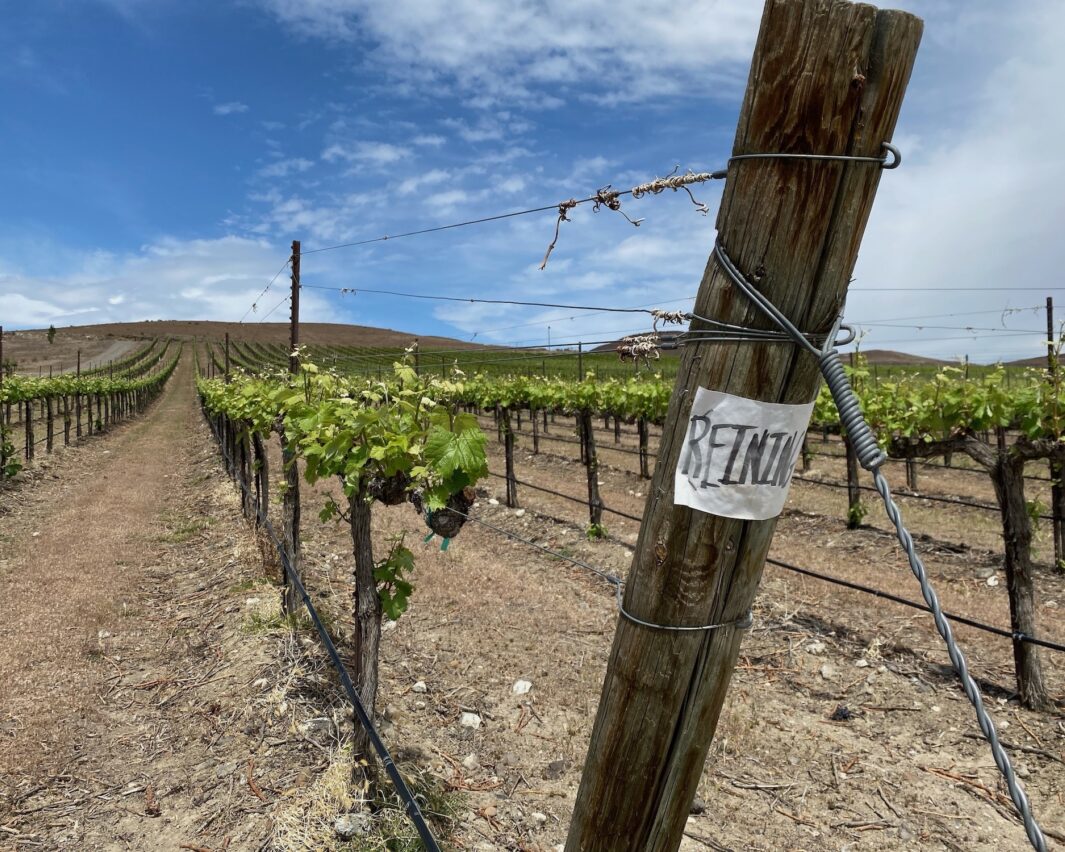
Stone Tree Vineyard, Wahluke Slope AVA
Grapes We Use: Cabernet Sauvignon, Cabernet Franc, Cinsault, Grenache, Mourvédre, Petit Verdot, Tempranillo, Syrah
Located in the heart of the Wahluke Slope, StoneTree Vineyard was planted in 2000 by Tedd Wildman, one of the most experienced and influential viticulturalists in Washington. Named for a series of petrified tree fossils found in the surrounding Saddle Mountain hillside, StoneTree’s 257 acres are planted at the highest elevation of the Wahluke Slope, ranging 930-1,250 feet. In fact, in 2004 when most of Washington suffered severe frost damage, Stone Tree Vineyard was untouched and offered fruit to many wineries, including REININGER, to help them get by.
The vineyard on average sees about six inches of precipitation a year and is warmer than Walla Walla. The principal soil is a sandy silt loam, predominantly Scoon series, overlain on a rocky calcium carbonate base similar to some soils in the great vineyards of Bordeaux.
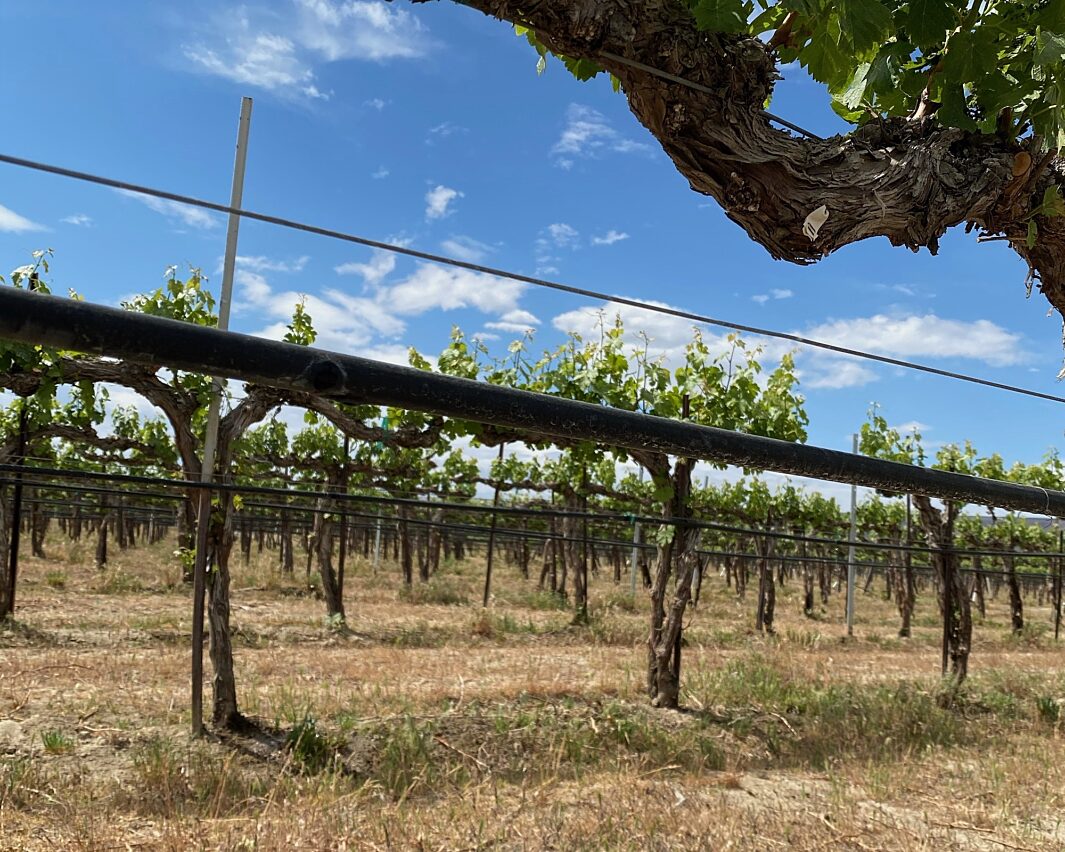
Weinbau Vineyard, Wahluke Slope AVA
Grapes We Use: Cabernet Franc
One of four vineyards associated with the larger Sagemoor Vineyards, Weinbau Vineyard resides just east of Mattawa, WA. With southern views of the Rattlesnake Mountains and the Saddle Mountains forming a backdrop to the north, Weinbau's south sloping land is a warm site with excellent air drainage.
Weinbau ecompasses 460 acres and over 10 different grape varieties, many of which produce full-bodied reds. Over the last 35+ years, Weinbau has expanded to grow over 10 different grape varietals, including one of the largest plantings of Cabernet Franc in Washington State.
The soils are predominantly Kennewick silt loam soils, making for a warm site with excellent air drainage. In 2008-2009, Weinbau expanded by 100 acres, and the row orientation in these new vines is about 35 degrees off the NS axis to the east, thereby minimizing direct afternoon sunlight on the west side of the vines. This creates a more even ripening and less sunburn potential on the grapes.
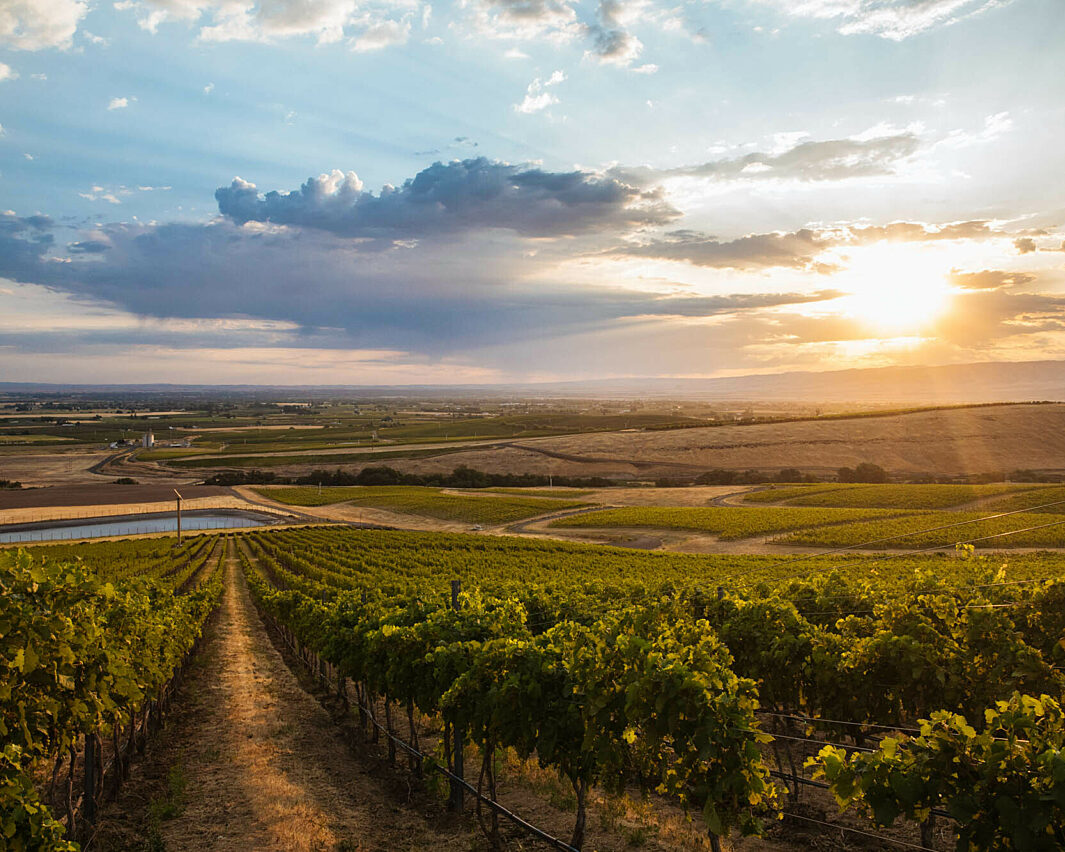
XL Vineyard, Walla Walla Valley AVA
CERTIFIED SALMON SAFE
Grapes We Use: Grapes we use: Cabernet Sauvignon, Cabernet Franc, Cinsault, Grenache, Mourvédre, Petit Verdot, Tempranillo, Syrah
Founded in 2005 as part of the larger SeVein project, XL Vineyard’s 47 acres are some of the highest planted in the Walla Walla Valley, at an elevation of 1,250 feet. XL is devoted to sustainable farming practices throughout the vineyard. Nestled under the Blue Mountains, XL Vineyard pierces the basalt soil foundations with stony loam and windblown loess that drapes the basalt ridgelines at the higher elevations. XL’s unique soil type and steep slopes provide vines with excellent air and water drainage, and can sustain a wide range of grape varietals.